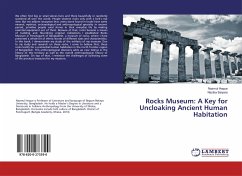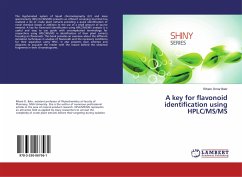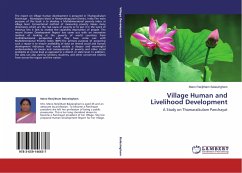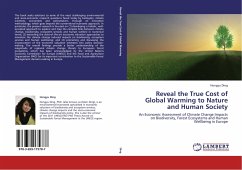
Rocks Museum: A Key for Uncloaking Ancient Human Habitation
Versandkostenfrei!
Versandfertig in 6-10 Tagen
27,99 €
inkl. MwSt.

PAYBACK Punkte
14 °P sammeln!
We often find big or small stones here and there beautifully or randomly scattered all over the world. People observe rocks only with a bird's eye view. But we seldom recognize that, every stone found in locale have some mineral, mythical, archaeological and anthropological specialty. In ancient period, primitive people used stones in their everyday life by making essential equipment out of them. Because of that, rocks became a means of building and flourishing original civilizations. I established Rocks Museum in Panchagarh of Bangladesh, a museum of rocks, where I have preserved a whole lot ...
We often find big or small stones here and there beautifully or randomly scattered all over the world. People observe rocks only with a bird's eye view. But we seldom recognize that, every stone found in locale have some mineral, mythical, archaeological and anthropological specialty. In ancient period, primitive people used stones in their everyday life by making essential equipment out of them. Because of that, rocks became a means of building and flourishing original civilizations. I established Rocks Museum in Panchagarh of Bangladesh, a museum of rocks, where I have preserved a whole lot of ethnic stones of different sizes and characteristics. In this book, I demonstrate my study of the artifacts of my museum. Due to my study and research on these rocks, I come to believe that, these rocks testify for a primordial human habitation in the north frontier region of Bangladesh. This anthropological discovery adds up new tidings in the history of this territory as well as the overall anthropological history of Bangladesh. On top of that, I reminisce the challenges of collecting some of the precious treasures for my museum.












